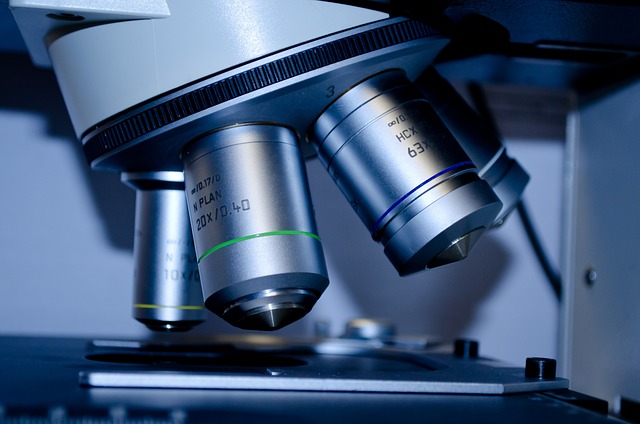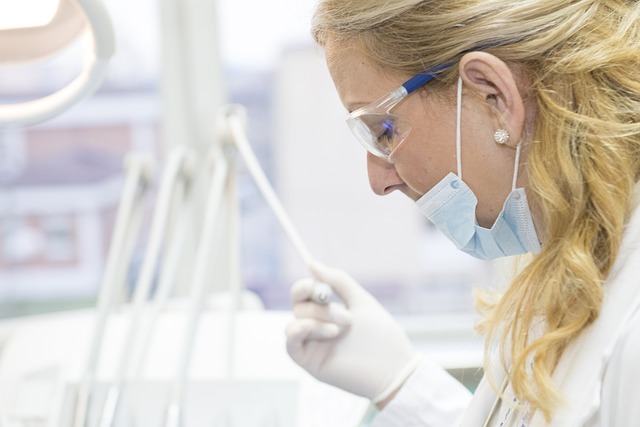TL;DR:
Precision and accuracy are crucial in translating UK medical case studies, as miscommunication can have severe implications for patient care and research integrity. Professional translation services with medical expertise are essential to navigate complex medical terminology and legal requirements. Certified translators ensure data privacy, adherence to ethical standards, and accurate interpretation of critical information. Advanced technologies like neural machine translation complement human expertise, enabling swift and reliable translations in the dynamic global healthcare landscape. Successful case studies highlight the indispensable role of these services in advancing medical research and improving patient care.
Need certified translations for your UK medical case studies? Accurate and professional translation is crucial for maintaining data integrity, ensuring compliance with legal and ethical standards, and facilitating global collaboration in healthcare research. This comprehensive guide explores the challenges of obtaining certified translations, the role of expert services, key considerations when choosing a provider, quality control measures, benefits of native speaker involvement, and the impact of inaccurate translations. Discover how efficient workflows and technological advancements are revolutionizing translation for medical case studies.
- Understanding the Importance of Accurate Translations in Medical Research
- Challenges in Obtaining Certified Translations for Case Studies
- The Role of Professional Translation Services in Ensuring Data Integrity
- Key Considerations when Choosing a Translation Provider for Medical Documents
- How to Ensure Quality and Accuracy in Medical Translation Projects
- Benefits of Using Native Speakers for Complex Medical Terminologies
- Legal and Ethical Implications of Inaccurate Translations in Healthcare
- Efficient Workflows: Translating UK Medical Case Studies within Tight Deadlines
- Technological Advancements Enhancing Medical Translation Services
- Case Study: Successful Implementation of Certified Translations in a Research Setting
Understanding the Importance of Accurate Translations in Medical Research

In the realm of medical research, precision and clarity are paramount. When presenting UK medical case studies, accurate translations play a pivotal role in ensuring that critical information is conveyed effectively across languages. Medical terminology is intricate and highly specific; translating it demands not just linguistic proficiency but also deep domain knowledge.
Translation services for UK medical case studies must adhere to stringent standards to maintain the integrity of the original content. Inaccurate or inadequate translations can lead to misunderstandings, misinterpretations, and potential risks in patient care and research outcomes. Thus, engaging professional translators with expertise in medical fields is essential to bridge the gap between languages, preserving the scientific rigour and ethical considerations inherent in medical practice and research.
Challenges in Obtaining Certified Translations for Case Studies

When it comes to medical case studies, accuracy is paramount. However, obtaining certified translations for these documents can present several challenges unique to the healthcare sector. Language barriers and the need for precise terminology are obvious obstacles, but there’s more. Medical jargon often requires specialized knowledge to ensure the translated text retains its meaning and integrity.
Translation services for UK medical case studies must also adhere to legal and regulatory requirements, including compliance with data protection laws. Moreover, maintaining confidentiality is crucial when dealing with sensitive patient information. These complexities demand a high level of expertise from translators, who should be not only linguistically adept but also familiar with the medical field and its terminology.
The Role of Professional Translation Services in Ensuring Data Integrity

Professional translation services play a pivotal role in ensuring data integrity when it comes to UK medical case studies. In a sector where precision and accuracy are paramount, only qualified translators with specific medical expertise can accurately convey complex medical terminology, concepts, and nuances from one language to another. This is essential for maintaining the credibility and reliability of case study documentation, whether it’s for research purposes, regulatory compliance, or patient care.
Translation services tailored for UK medical case studies go beyond simple word-for-word translation. They involve rigorous quality assurance processes, including peer review by fellow medical professionals, to guarantee that translated documents are not only linguistically accurate but also conceptually sound. This level of expertise is crucial in mitigating risks associated with miscommunication or misinterpretation, which could have significant implications for patient safety and the integrity of healthcare research.
Key Considerations when Choosing a Translation Provider for Medical Documents

When selecting a translation service for UK medical case studies, several crucial factors come into play to ensure accuracy and reliability. Firstly, expertise in the medical field is essential; the provider should have experienced translators who understand complex medical terminology and concepts. This specialist knowledge guarantees that your documents are translated with precision, preserving the integrity of medical information.
Additionally, compliance with legal and ethical standards is vital. Look for a translation company that adheres to industry regulations, such as those related to data privacy and confidentiality, especially when dealing with sensitive patient records. Reputable providers will have robust security measures in place, ensuring your documents remain secure throughout the translation process.
How to Ensure Quality and Accuracy in Medical Translation Projects

When it comes to medical case studies, ensuring accuracy and quality in translations is paramount. The UK’s strict healthcare regulations demand precision, making certified translation services indispensable for medical professionals. Look for providers who not only possess expertise in medical terminology but also adhere to industry standards such as ISO 17100. These services should employ professional translators with clinical backgrounds, guaranteeing an understanding of medical concepts and ensuring consistent, error-free translations.
Additionally, leveraging technology like machine translation can aid in efficiency, but it must be post-edited by human experts to maintain accuracy. Requesting samples or references from potential translation service providers allows for an assessment of their quality control processes. Remember, the stakes are high when dealing with medical case studies—selecting a reputable translation service is vital to preserving data integrity and patient confidentiality.
Benefits of Using Native Speakers for Complex Medical Terminologies

When it comes to medical case studies, precision and clarity are paramount. Using native speakers for translations can significantly enhance the quality of your UK medical case study documents. They possess not only a deep understanding of the language but also the expertise to handle complex medical terminologies accurately.
Native speaker translators are immersed in their language’s nuances, idioms, and current usage. This ensures that technical concepts from one language are expressed naturally and precisely in another, avoiding potential ambiguities or misinterpretations. For instance, precise translations of rare medical conditions, procedures, or pharmacological terms can better reflect the original intent, thereby contributing to more reliable case study analysis and understanding among healthcare professionals and researchers worldwide.
Legal and Ethical Implications of Inaccurate Translations in Healthcare

Inaccurate translations in healthcare can have severe legal and ethical implications. When dealing with medical case studies, which often involve sensitive patient information, reliable and certified translation services for UK Medical Case Studies are paramount. Misinterpretation or mistranslation of critical data could lead to misdiagnosis, improper treatment, or even legal repercussions. Healthcare professionals must ensure that all documentation, from patient records to clinical trials, is accurately conveyed in the target language to maintain patient safety and comply with ethical standards.
The consequences of inaccurate translations extend beyond individual patients. They can impact healthcare systems as a whole, potentially affecting regulatory compliance and legal liability. Certified translators with medical expertise are crucial to mitigating these risks. Their specialized knowledge ensures that complex medical terminology is handled accurately, preserving the integrity of case studies and facilitating informed decision-making in cross-cultural healthcare settings.
Efficient Workflows: Translating UK Medical Case Studies within Tight Deadlines

In the fast-paced world of healthcare, time is of the essence. When it comes to UK medical case studies, accurate and timely translations are non-negotiable. Certified translation services play a vital role in ensuring that medical research and patient records are conveyed effectively across languages, especially when working under tight deadlines. These services employ a streamlined workflow designed to handle complex medical terminology while maintaining strict confidentiality.
Efficient translation processes involve a team of expert linguists who specialize in medical fields, ensuring precision and cultural sensitivity. Advanced technology, including specialized software and machine learning tools, aids in faster turnaround times without compromising quality. This is particularly crucial for healthcare professionals and researchers who rely on these translations to communicate critical information, fostering collaboration and facilitating global medical advancements.
Technological Advancements Enhancing Medical Translation Services

In today’s global healthcare landscape, accurate and efficient translation services for UK medical case studies have become increasingly vital. Technological advancements have revolutionised the field of medical translation, offering enhanced precision and speed. AI-powered tools, such as neural machine translation (NMT), have made significant strides in producing high-quality outputs that closely mirror human translations. These innovations enable healthcare professionals to access critical information from international case studies without compromising on integrity or nuance.
By leveraging these technological breakthroughs, translators can now cater to the unique demands of medical terminology and complex concepts. Advanced translation software equipped with medical dictionaries and subject matter expertise ensures that technical terms are conveyed accurately across languages. This is particularly crucial for UK healthcare providers who rely on diverse case studies from global sources to enhance their practice and patient care.
Case Study: Successful Implementation of Certified Translations in a Research Setting

In recent years, translation services for UK medical case studies have become increasingly important as healthcare research spans global boundaries. A successful implementation of certified translations in a renowned research institution highlights the significance of accurate and reliable language support. This case study focuses on a groundbreaking clinical trial where multilingual participants from diverse backgrounds were essential to its outcome.
The research team encountered numerous challenges when designing their study, including ensuring ethical considerations for international subjects. They partnered with a professional translation service that specialised in medical terminology to overcome this hurdle. Every document, from informed consent forms to survey questionnaires, was meticulously translated into multiple languages. This process ensured clear communication and comprehension for all participants, fostering inclusivity and reducing potential biases. The certified translations not only facilitated data collection but also contributed to the overall success of the trial, demonstrating the critical role language services play in modern medical research.
When dealing with UK medical case studies, ensuring accurate and certified translations is paramount. The article has explored the challenges, benefits, and best practices in this domain, highlighting the crucial role of professional translation services. By considering key factors like using native speakers, leveraging technology, and adhering to legal-ethical standards, research teams can navigate complexities and maintain data integrity. Translation services for UK Medical Case Studies should be viewed as a strategic asset, enabling seamless communication and global impact in healthcare research.
